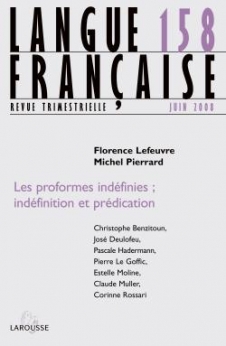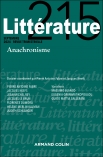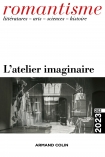
Langue française n° 158 (2/2008)
Pour acheter ce numéro, contactez-nous
Recevez les numéros de l'année en cours et accédez à l'intégralité des articles en ligne.
In this paper, a unified description of the introducers of ‘completive subordinate clauses’ in French (as in Je crois qu’il va pleuvoir ‘I think that it is going to rain’) is given, taking into account the que P / ce que P variation (as in Je suis heureux que P / Je suis heureux de ce que P ‘I am happy that S’ / literally ‘I am happy of this that S’), and linking the ‘completive’ que to other uses of que (interrogative, relative,…), within an overall theory of Qu-words (described in other papers). The basic hypothesis is that ‘Qu- words’ in French, like their English counterparts ‘Wh- words’, build a word class whose main characteristics is to introduce variables, in various manners corresponding to their different uses (interrogative, indefinite, subordinative,…). No ‘complementizer’ is considered: que, in its function of introducing ‘completive subordinate clauses’, is a full-fledged ‘Qu- word’, namely a pronoun used in a highly abstract way.

